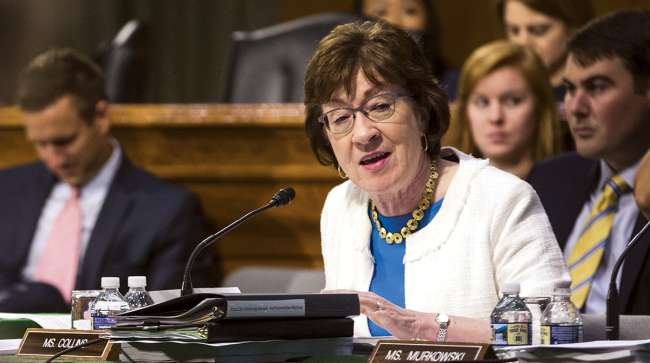Senior Reporter
Senate Committee Advances Fiscal 2020 Transportation Funding Bill

[Stay on top of transportation news: Get TTNews in your inbox.]
WASHINGTON — An infrastructure grants program managed at the U.S. Department of Transportation would receive $1 billion in the upcoming fiscal year under legislation a Senate panel easily reported to the floor of the chamber Sept. 19.
The funding proposed for the Better Utilizing Investments to Leverage Development, or BUILD, program is aimed at assisting states with big-ticket projects. Senators on the Appropriations Committee backed the program during the consideration of their fiscal 2020 funding legislation.
Under the legislation, which has a top line of $74.3 billion, the Federal Motor Carrier Safety Administration would receive $679 million.
WANT MORE NEWS? Listen to today's Daily Briefing
For other agencies, the bill would provide:
- Federal Highway Administration, $49.8 billion
- Federal Aviation Administration, $17.7 billion
- Federal Transit Administration, $13 billion
- Federal Railroad Administration, $2.8 billion
- National Highway Traffic Safety Administration, $972 million
The bill also would propose continuing with a delay of the enforcement of the electronic logging device mandate for livestock and insect haulers, according to background provided by the panel.
“This legislation will support job creation and economic development, allow us to make critical improvements to our infrastructure, provide housing assistance for low-income seniors and other vulnerable populations, and enhance oversight of the [Federal Aviation Administration’s] aviation safety and aircraft certification programs,” said Sen. Susan Collins (R-Maine), chairwoman of the Transportation, Housing and Urban Development, and Related Agencies Subcommittee.

Reed
“We must make forward-looking investments in our national infrastructure, including our roads, bridges, housing and new technologies,” added Sen. Jack Reed (D-R.I.), the subcommittee’s ranking member, after the panel’s approval of the bill Sept. 17. “This bill is a concrete example of bipartisan progress, but much more is possible if we focus on building bridges, not walls.”
It’s unclear when the Senate will take up the transportation funding legislation. Federal funding for the fiscal year expires Sept. 30. Republican leaders who manage legislation in the Senate expressed frustration with the pace of the process, acknowledging temporary funding legislation is likely needed to avoid a government shutdown.
“Ultimately, we have to move forward together,” Appropriations Committee Chairman Richard Shelby (R-Ala.) said. “To do that, we have to be able to work in good faith. If we cannot, this process will not work very well at all. The members of this committee on both sides know how to work together to get the job done.”

Shelby
Meanwhile, on Sept. 18, House funding leaders unveiled a continuing resolution designed to keep federal agencies funded through Nov. 21.
“While the House did its work, the Senate appropriations process is far behind. Because of this delay, we must pass a continuing resolution to avoid another government shutdown,” said House Appropriations Committee Chairwoman Nita Lowey (D-N.Y.).
In June, the House advanced its fiscal 2020 transportation funding bill, which also would provide $1 billion for infrastructure grants. Under the bill, FMCSA would receive $677 million. The bill also would provide $48.9 billion for FHWA, $13.5 billion for FTA, $3 billion for FRA and $1 billion for NHTSA.
In a report accompanying a separate funding bill, Senate appropriators reminded the Department of Health and Human Services of a directive requiring them to produce scientific and technical guidelines for hair testing to deter usage of controlled substances. Besides directing the department to finalize hair testing guidelines, the panel also would require the department’s secretary to produce a progress report for Congress.




